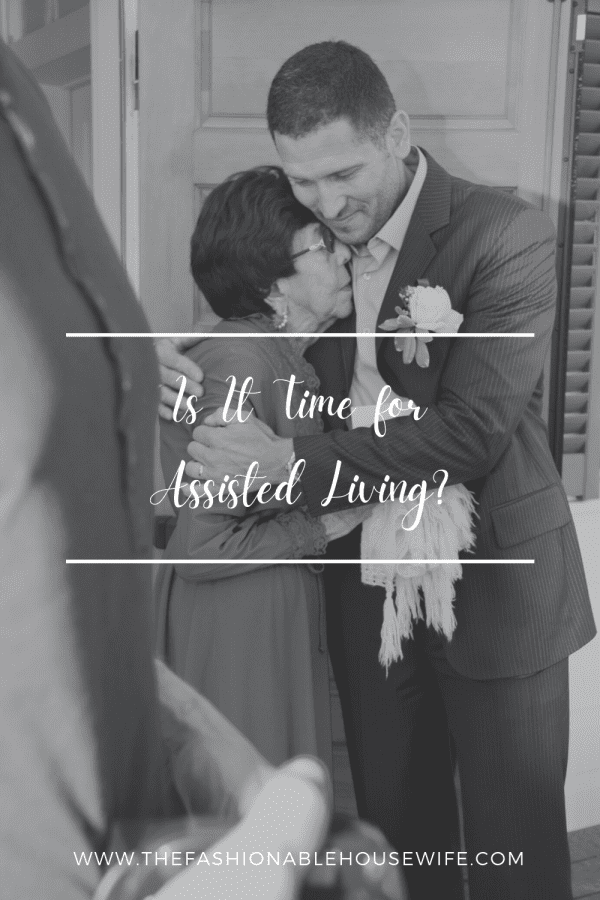
It can be difficult to admit that something might not be quite right with your elderly parent. Throughout your life, they have been the ones you turn to in times of need for support and advice. They have been there to look after you and protect you from the day you were born. So, trying to imagine how the tables might turn during their later years can be hard to do. Nonetheless, as people age, they do start to struggle to do the things they used to, and getting the right support so they can continue to live comfortably and safely is essential. If you have noticed any of the following in your elderly parents, it could be time to think about assisted living.
Decline in Hygiene
If you have noticed that your elderly parent doesn’t appear to be regularly washing anymore, whether that’s noticeable by smell or visible dirt on their face and body, this is something to start worrying about. Their decline in hygiene could be due to low mental health, or perhaps they find it painful to move when bathing themselves, or maybe they are afraid of falling in the shower or being unable to get out of the bath. This will be a sensitive subject, so address this issue with them gently to try and get to the bottom of why they have stopped bathing and ask if they need help.
The House is a Mess
Another tell-tale sign that something isn’t right is if their home is in disarray, especially if they have always been houseproud individuals throughout their life. The reasons for the house being in such a state are the same reasons why they might no longer be bathing, and it’s important to address this because an untidy, dirty home can attract pests and develop mold and other nasty things that will not only be unpleasant to live in but could also start to pose a health risk if left too long.
They Are Becoming Forgetful

Memory loss is something that should be monitored closely because although this isn’t uncommon and can happen to anyone on occasion, it could also be a sign of dementia. If your parent has been doing things like forgetting to lock the door or turn off the stove, this puts them and potentially other people in danger. This is why moving them into an assisted living community might be a better option. If they are doing things like this but are also showing other signs of dementia or Alzheimer’s disease, you might want to explore memory care living facilities instead to get them the right help for their condition.
Mismanagement of Medication
If your parent is taking medication but they have often forgotten to take it or actively avoiding taking it, this can be a problem. You might be able to help them with their medication management, but if you’re unavailable to do this, a caregiver in an assisted living facility can. This will help make sure your parents’ health doesn’t decline due to skipping prescriptions or taking medication inconsistently and reducing the chance of accidental overdose.
Mismanaged Finances
Another concerning sign that your parents might need some help is if you have noticed that they are mismanaging their finances. It could be that bills aren’t being paid on time, or that they are frequently being scammed, or purchasing items that are unnecessary and expensive. Again, this is something you can help them with yourself, but if you don’t live nearby or don’t have the time to monitor this due to other commitments in your life, you might want to think about getting them some professional help.
Weight Loss or Weight Gain
The reason a senior’s diet might start to suffer is that they are struggling to prepare nutritious meals for themselves. They might be skipping the meal altogether, or only eating easy-to-make dishes like soup, or relying on ready meals and takeaway as their main food source instead. While these things might not be harmful on occasion, too much will lead to weight gain or loss and other health issues. Help with meal preparation is essential to keeping your parent’s health in check.
What Is Assisted Living?
The signs listed above are all things you should be worried about, particularly if you can see more than one of them happening to your elderly parent. If this is happening, it is time to think about moving them into an assisted living facility. So, what is an assisted living facility? These are residential communities where your parent will have access to professional caregivers day and night. They will be provided with a private room or small apartment, depending on what the facility offers, and have someone to help them with things like grooming, bathing, cleaning, and so on. Meals will be prepared for them onsite, they will also have help with medication management, and there will be plenty of opportunities for them to socialize with other residents. If you want to look into this further, you can find out more about how to get your parents into assisted living here.
What Are the Other Options?
Not everyone is ready or comfortable with the idea of moving their parent into an assisted living community, or your parent might not want to do this. You can look at alternative options, such as live-in care, where you hire a caregiver to move in with your parent and provide them with the support they need in the comfort of their home. You could also move your parent in with you, but this can be quite challenging, so it needs careful consideration before you choose this option. You could also have a care provider visit your parent at home rather than move in with them if they are uncomfortable with a stranger moving in with them. However, if you’re a parent who does need more hands-on help, this might not be as practical as you’d like.
It’s important to make sure your elderly parent gets the right care and attention as they move into their golden years. If you noticed any of these signs, speak to them about assisted living or other care options that could help them to find the perfect fit and keep them safe and happy.



